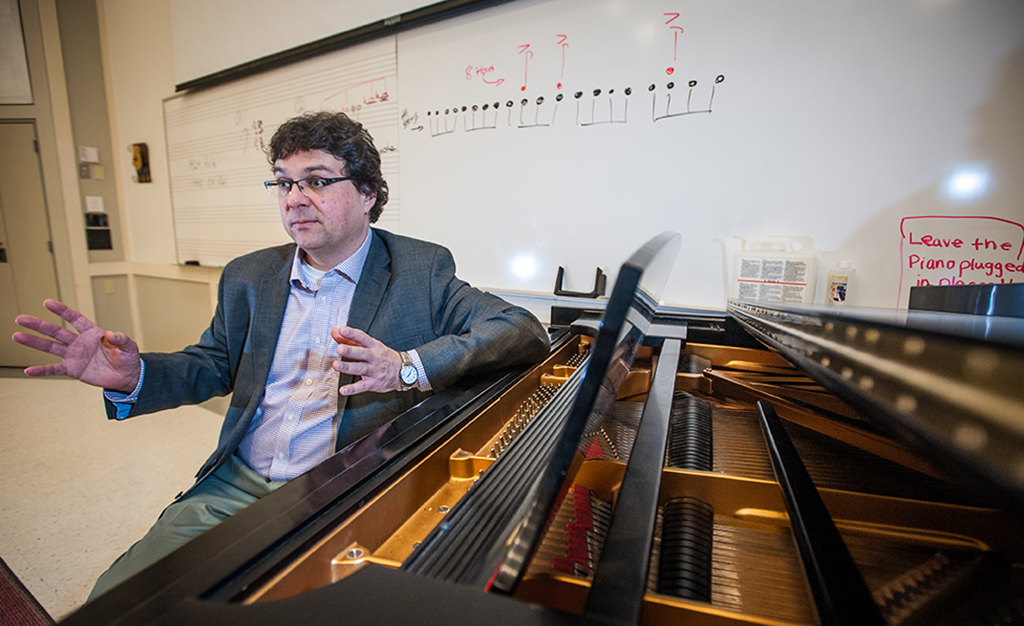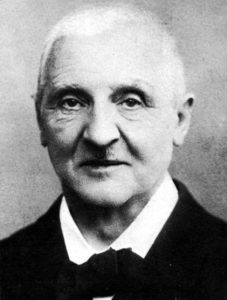In the New York Times
Music professor plays key role in award-winning Bruckner symphony project

Professor Benjamin Korstvedt, chair of Visual and Performing Arts and director of the Music Program, collaborated on a major recording project with the Bamberg Symphony Orchestra that recently won the International Classical Music Awards’ Best Symphonic Recording category.
The project — a four-disc recording that features three versions of 19th-century Austrian composer Anton Bruckner’s Symphony No. 4, complete with an extensive essay written by Korstvedt — is part of a complete Bruckner collection being published under the auspices of the Austrian National Library.
In “There Are Three Versions of Bruckner’s Fourth. Why Choose?,” The New York Times explores the ongoing editing of Bruckner’s Fourth Symphony, calling it “a work in progress.”

“The burden is on musicologists and conductors to decide which iteration is the most authentic, or just the best,” according to the Times. “And that problem is most acute with the Fourth Symphony, which Bruckner worked on longer than the others.”
Enter Professor Korstvedt, an internationally recognized musicologist and leading scholar on Bruckner, and Jakub Hrusa, chief conductor of the Bamberg Symphony in Germany. As the Times reports, the orchestra’s recordings of the three versions of Bruckner’s Fourth include world premiere recordings of two new editions edited by Korstvedt, who has published widely and received international and national fellowships and awards for his expertise on this outstanding yet still misunderstood composer.
The Bruckner Society of America in 2010 awarded him with the Julio Kilenyi Medal of Honor in recognition of “exemplary work in furthering the understanding and appreciation of the life and work of Anton Bruckner.” And in 2020, Korstvedt received the Claude V. Palisca Award from the American Musicological Society for his critical edition of Anton Bruckner’s Symphony No. 4 in E-flat major, second version, one of the versions featured on these recordings.
As part of Korstvedt’s decades-long research, he has examined how and why the arch-conservative Nazis embraced Bruckner’s avant garde symphonies, discussing this contradictory co-option in a 2019 lecture at Clark’s Strassler Center for Holocaust and Genocide Studies.
In the fall 2018 German Quarterly, he noted that Bruckner’s symphonies “currently occupy a secure if relatively marginal position in musical life; they are performed regularly by many orchestras but are hardly the focus of great cultural energy,” compared to Germany in the 1930s, when “Bruckner’s symphonies were performed more frequently … than in any other decade before or after.” He implored that “a more critical and informed reading of the language and rhetoric emanating from that time will finally break the lingering influence of that dark chapter in the history of the composer’s music.”
As Korstvedt explained recently, the newest recordings therefore “represent a significant step toward the goal of a creating a more enlightened and historically aware chapter in the history of Bruckner’s magnificent symphonies.”


